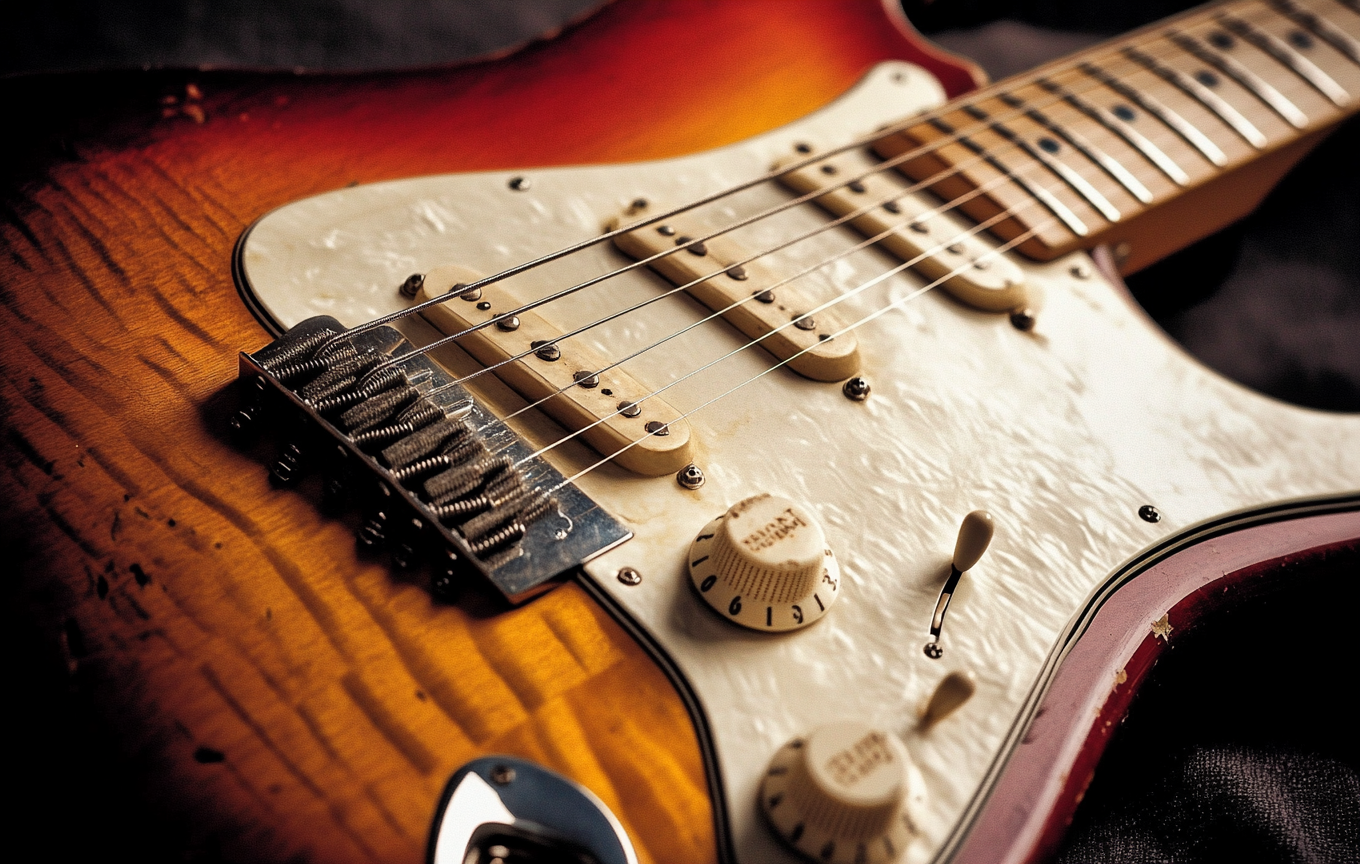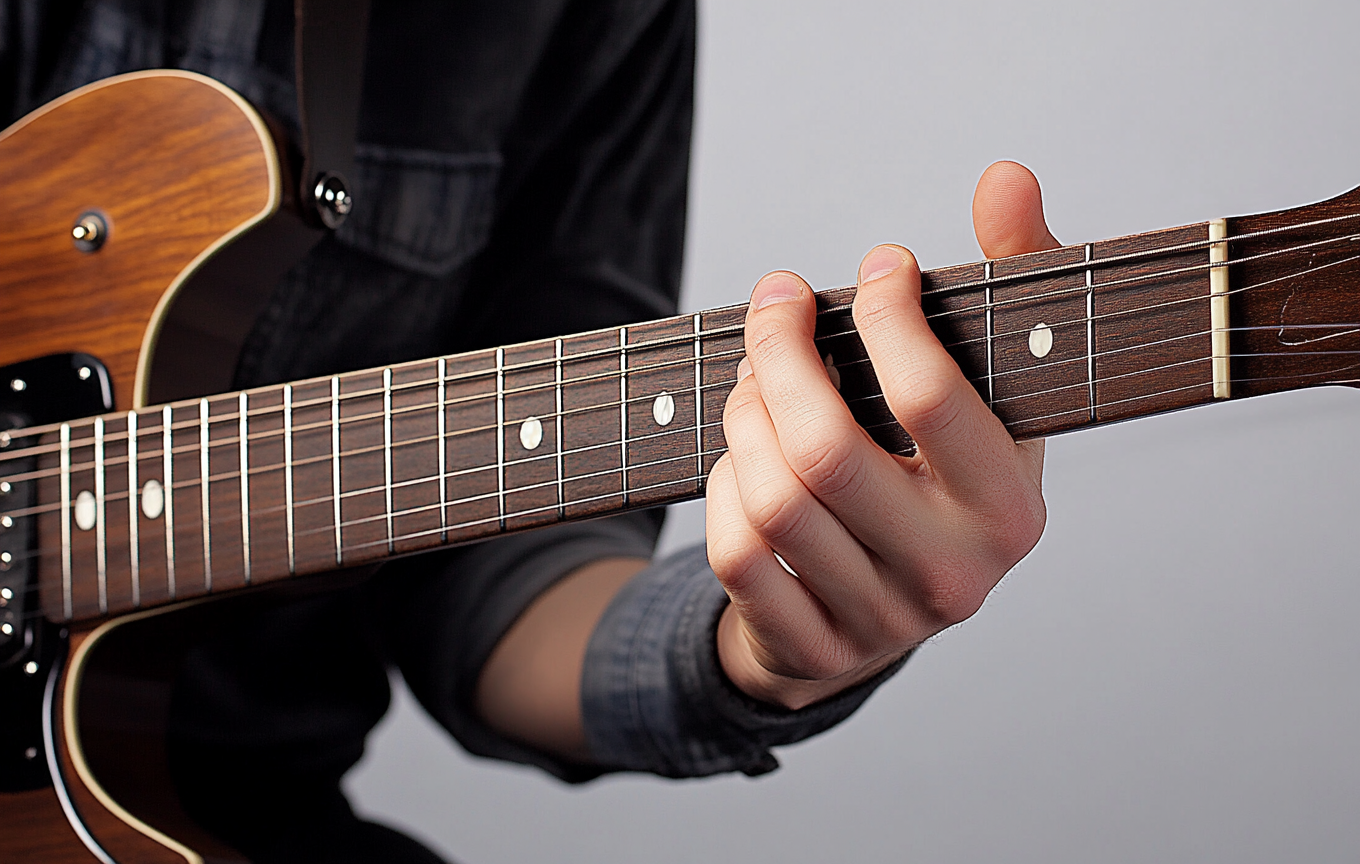How To Play D7 Baritone Ukulele Chord
Learning and practicing how to play various basic chords well enhances the smoothness and emotional richness of your ukulele sound. The D7 baritone ukulele chord is an excellent choice for elevating your skills. Whether you're a beginner or an intermediate player, we'll walk you through the steps to create this chord in both open and barre positions.
What is D7 baritone ukulele chord?
The D7 baritone ukulele chord is a specific chord that can be played on a baritone ukulele. Here's an overview of the D7 baritone ukulele chord:
Tuning : G-Tuning (DGBE)
Chord Name: D7
This is the name of the chord, indicating that it is a D dominant 7th chord.
Chord Formula: 1-3-5-b7
This formula represents D7 chord note:
- 1: D (the root note)
- 3: F# (the major third)
- 5: A (the perfect fifth)
- b7: C (the dominant seventh)
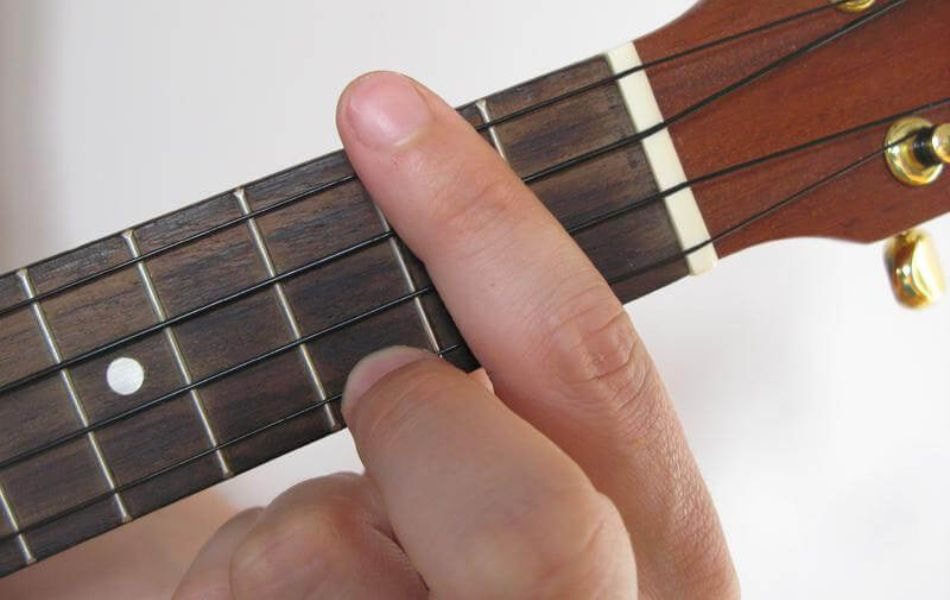
Classification of D7 baritone ukulele
Open chord
To play the D7 open position chord on the baritone ukulele, you only need to use 2 fingers, including:
- Thumb: Place it on the 2nd string (second string) at the 2nd fret.
- Index Finger: Leave the 1st string (top string) open (unpressed).
The D7 chord is commonly used in chord progressions and musical compositions. It frequently appears as a transitional chord, creating progression and separation between musical sections. The D7 chord is also popular in blues and jazz music.
Because you only need to use 2 fingers to play the D7 open position chord, it is one of the easiest chords for beginners learning to play the baritone ukulele. It doesn't require advanced techniques and allows you to participate in songs quickly.
The D7 open position chord on the baritone ukulele is one of the essential chords that ukulele learners typically start with, and it often appears in various songs.
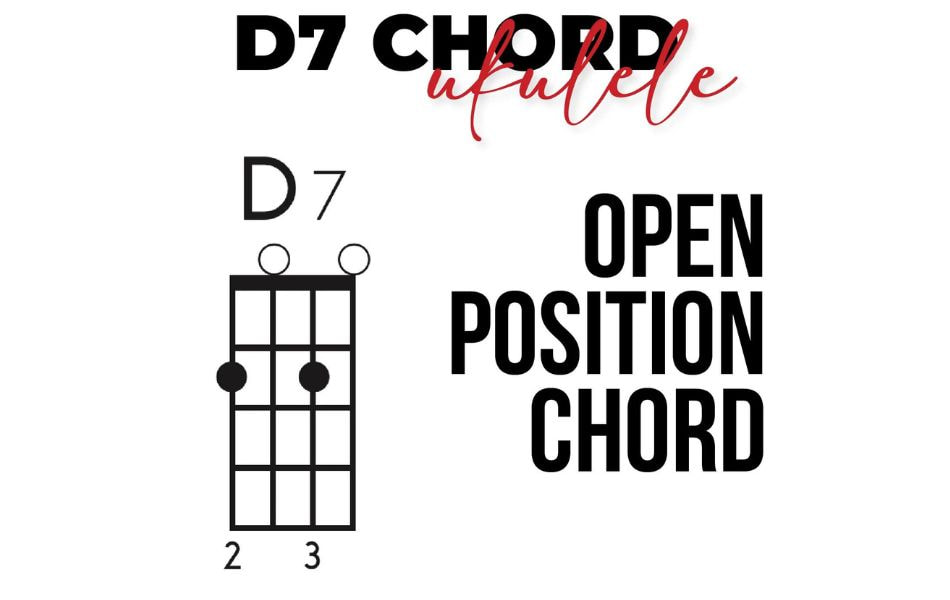
Barre chord
Playing the D7 barre chord on the baritone ukulele requires flexibility and practice, as you need to apply consistent pressure across the entire fretboard. It's typically not for beginners, but as you become familiar with it, it can be an excellent way to expand your playing on the baritone ukulele.
To play the D7 barre chord on the baritone ukulele, you can use the following method:
- Use your index finger to create a "barre" (press down on all strings) at the 2nd fret, covering all the strings.
- Use your middle finger to press down firmly on the 4th string (the fourth string) at the 3rd fret. This creates the note F# on the fourth string.
- Do not strike the remaining strings. You can leave the other strings open (unpressed) to produce the D7 chord.
The D7 baritone ukulele chord is often used when you want to expand the sound and creative possibilities on your baritone ukulele. This may appear in music with more complex harmonic needs or when you want to create a stronger impact in your music.
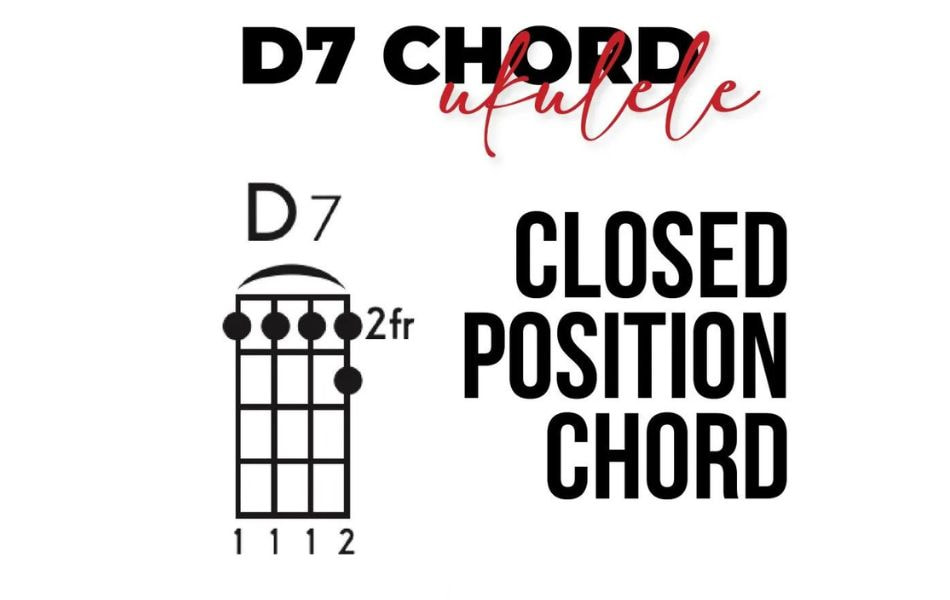
D7 baritone uke vs D7 guitar chord
The D7 chord on the baritone ukulele and the D7 chord on the guitar have some similarities and differences:
Similarities
Basic Structure: Both D7 chords consist of the following basic notes: D (root note), F# (3rd note), A (5th note), and C (flatted 7th or b7 note).
Fundamental Sound: Both D7 chords have a similar sound, with a cheerful melody and versatility suitable for various music genres, including blues, jazz, and more.
Differences
Playing Technique: You need to use all your fingers to play the D7 guitar chord, whereas on the baritone ukulele, you can use fewer fingers to play the D7 chord, especially when playing in open positions.
Number of Strings: The baritone ukulele has 4 strings, while the guitar has 6 strings. Therefore, they provide different sounds and feelings due to the difference in the number of strings.
Transposing: When transposing, you need to use different transposition rules for the guitar and the baritone ukulele because they have different numbers of strings and different tuning systems.
These similarities and differences make each instrument unique and offer different musical possibilities when playing the D7 chord.
The D7 baritone ukulele chord is versatile. So, make it a part of your daily routine, and with time, you'll notice your ukulele skills blossoming. Your musical journey is a rewarding one, and the D7 chord is your key to unlocking even greater potential.





